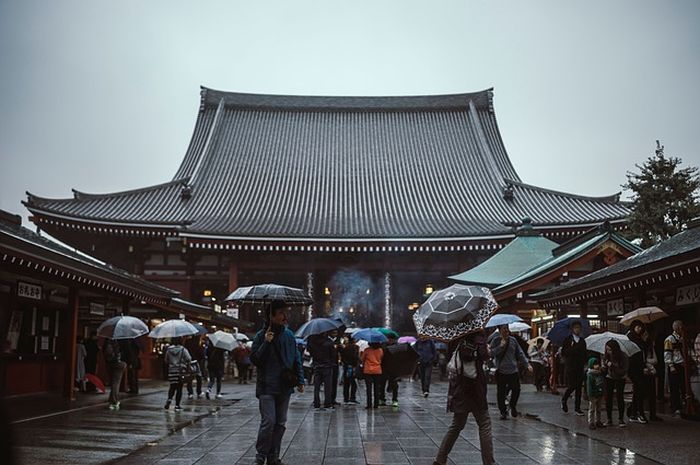- Sejarah dan Perkembangan Masjid di Indonesia
- Pentingnya Masjid dalam Masyarakat Indonesia
- The Architecture and Design of Mosques in Indonesia
- The Role of Mosques in Islamic Education and Community Building
- Challenges Faced by Mosques in Indonesia Today
- 1. Funding Issues
- 2. Social and Political Tensions
- 3. Cultural Changes
- 4. Digitalization and Technology
- 5. Maintaining Relevance and Effectiveness
Sejarah dan Perkembangan Masjid di Indonesia
Indonesia terkenal sebagai negara Muslim terpadat di dunia, dengan mayoritas penduduknya memeluk agama Islam. Ada banyak sekali masjid di Indonesia, mulai dari yang terbesar hingga yang kecil. Sejak Islam masuk ke Indonesia, masjid sudah menjadi tempat terpenting bagi umat Muslim dalam menjalankan ibadahnya. Pada awalnya, masjid dibangun sebagai tempat berkumpulnya para mubaligh dan para pembelajar agama Islam. Namun seiring berjalannya waktu, fungsi masjid di Indonesia semakin berkembang dan menjadikan masjid sebagai pusat kegiatan sosial, keagamaan, dan budaya di masyarakat.
Perkembangan masjid di Indonesia bermula dari masjid-masjid yang didirikan pada zaman Kerajaan Islam di Indonesia, seperti Masjid Demak, Masjid Agung Ternate, dan Masjid Baiturrahman Aceh. Masjid-masjid tersebut merupakan bukti sejarah Islam yang hadir di Indonesia dan terletak di daerah-daerah yang menjadi pusat perkembangan ajaran Islam di Indonesia. Masjid Demak, misalnya, terletak di Kabupaten Demak, Jawa Tengah, dan dikenal sebagai sebuah masjid yang sangat bersejarah karena pernah menjadi tempat pertemuan para wali yang berkumpul untuk membahas ajaran Islam.
Selain masjid-masjid bersejarah, setiap zaman juga menghasilkan masjid yang memiliki keunikan sendiri. Salah satunya adalah Masjid Raya Jakarta atau Masjid Istiqlal. Masjid ini adalah masjid terbesar di Indonesia dan bahkan menjadi salah satu masjid terbesar di dunia. Masjid Istiqlal dibangun pada tahun 1978 di bawah pimpinan Presiden Soeharto sebagai simbol kesatuan dan persatuan umat Muslim di Indonesia. Meskipun dibangun pada zaman modern, namun arsitektur masjid ini tetap mengedepankan nilai-nilai tradisional dan keindahan arsitektur Islam.
Masjid Jami’ Al-Azhar juga menjadi salah satu masjid yang terkenal di Indonesia. Masjid ini terletak di Jakarta Pusat dan memiliki sejarah panjang. Salah satu fakta menarik tentang masjid ini adalah adanya vazan teknologi pendengar suara yang terintegrasi pada sistem loudspeaker di dalam masjid. Fasilitas ini mampu menjangkau jamaah yang ada di dalam maupun luar masjid. Fasilitas pendengar suara ini menjadi sangat berguna terutama ketika ada acara-acara besar atau pengajian yang diadakan dalam masjid.
Di Indonesia, masjid juga menjadi tempat terpenting dalam membina hubungan sosial antara masyarakat. Baik itu dalam bentuk acara perkawinan, tahlilan, pengajian, hingga kegiatan sosial yang membantu para fakir miskin dan orang yang membutuhkan. Banyak masyarakat Indonesia yang berbondong-bondong untuk datang ke masjid dan kemudian membersihkan lingkungan sekitar masjid atau turut serta dalam pengajian berjamaah. Hal ini menunjukkan betapa pentingnya peran masjid dalam kehidupan masyarakat Indonesia.
Perkembangan masjid di Indonesia juga dilengkapi dengan teknologi modern. Saat ini, banyak masjid yang menggunakan teknologi canggih dalam menunjang kegiatan sosial dan keagamaan. Misalnya, masjid-masjid yang terhubung dengan internet sehingga para jamaahnya bisa memperoleh informasi terbaru tentang kegiatan yang diadakan di masjid. Ada juga masjid yang menyediakan database untuk para penghafal Al-Quran, sehingga memudahkan para jamaah untuk mencari informasi tentang ayat-ayat tertentu.
Terlepas dari segala perkembangan teknologi yang ada, peran masjid dalam kehidupan masyarakat Indonesia tetap tidak tergantikan. Masjid terus menjadi tempat pertama yang didatangi oleh umat Muslim ketika hendak beribadah, mencari kegiatan sosial dan keagamaan, atau sekadar mencari ketenangan hati di tengah aktivitas yang padat. Perkembangan masjid di Indonesia menunjukkan betapa pentingnya peran Islam dalam kehidupan masyarakat Indonesia dan juga sebagai tanda persatuan yang membawa nilai-nilai keagamaan dan tradisi masyarakat Indonesia. Masjid terus berupaya membangun dan membina komunitas yang kuat serta menjadi wadah bagi masyarakat Indonesia untuk menciptakan kemanunggalan yang jauh dari perpecahan dan perselisihan.
Pentingnya Masjid dalam Masyarakat Indonesia
Masjid menjadi salah satu simbol keagamaan di Indonesia, waktu shalat jamaah di atas semua kesibukan biasanya dilakukan di masjid. Masjid juga sangat penting dalam budaya Indonesia. Kita sering melihat masjid tidak hanya sebagai tempat ibadah, namun sebagai pusat kegiatan sosial, keagamaan, bahkan kegiatan politik. Masyarakat Indonesia sangat menghargai dan menjaga masjid, dan hal itu sudah menjadi kebiasaan turun-temurun. Berikut adalah pentingnya masjid dalam masyarakat Indonesia.
Masjid sebagai Tempat Ibadah
Masjid memiliki peran penting sebagai tempat untuk menunaikan ibadah wajib, seperti shalat lima waktu, shalat jumat, dan lainnya. Kehadiran masjid sangat membantu umat Islam yang tinggal di perkotaan untuk tetap dapat melaksanakan ibadah dengan lancar, meskipun kesibukan dan rutinitas yang padat.
Tak hanya itu, di samping masjid sering diselenggarakan berbagai kegiatan keagamaan seperti pengajian, tausiah, dan pengajian akbar selama bulan Ramadan. Dalam kegiatan-kegiatan tersebut, para ulama dan dai menyampaikan pesan-pesan agama dan memberikan panduan bagi umat Islam.
Masjid sebagai Pusat Kegiatan Sosial
Masjid juga menjadi pusat kegiatan sosial dalam masyarakat Indonesia. Kegiatan yang sering diadakan di masjid adalah pengajian tipikalnya adalah majelis taklim, yaitu majelis pengajian di masjid atau di rumah yang lebih bersifat informal. Selain itu, masjid juga menjadi tempat berkumpulnya masyarakat yang ingin membantu korban bencana alam, seperti gempa dan banjir, menyalurkan bantuan sosial, menjalin silaturahmi, dan membina hubungan saling pengertian antar umat beragama.
Masjid sebagai Pusat Pendidikan Agama
Masjid juga berperan penting dalam pendidikan agama, khususnya bagi anak-anak. Di dalam masjid sering diselenggarakan pengajian khusus untuk anak-anak, seperti Taman Pendidikan Quran (TPQ) dan Pendidikan Agama Islam (PAI). Melalui pengajian ini, anak-anak dapat belajar mengaji, membaca Al-Quran, serta mengenal lebih dekat ajaran agama Islam.
Selain itu, sebagian masjid di Indonesia juga memiliki pondok pesantren. Pondok pesantren adalah lembaga pendidikan agama Islam yang memberikan pendidikan formal seperti yang berlaku di sekolah umum, selain pendidikan agama Islam.Tujuannya adalah tidak hanya memberi peserta didik pengetahuan agama, tapi juga mempersiapan mereka menjadi warga negara yang baik, bertanggungjawab, mandiri, dan mempunyai wawasan luas tentang bumi dan alam semesta beserta isinya.
Masjid sebagai Tempat Obrolan Warga
Banyak sekali peran masjid dalam sosial masyarakat Indonesia, di antaranya sebagai tempat berkumpulnya para jamaah dan berinteraksi dengan warga sekitar. Di dalam masjid, terjadi interaksi sosial antara para jamaah yang memiliki berbagai latar belakang dan profesi. Umumnya mereka membahas isu-isu terkini, seperti politik, hukum, dan kebijakan pemerintah.
Di masjid, masyarakat dapat bertemu dengan teman yang lama tidak diseingi dan menjalin kembali silaturaahim. Moment salam sapa sesama jamaah yang menjadi habit di masjid, menambah keakraban dan keharmonisan dalam kehidupan sosial masyarakat.
Kesimpulan
Dalam masyarakat Indonesia, masjid sangat penting sebagai simbol keagamaan, pusat ibadah, kegiatan sosial, dan pendidikan agama. Masjid merupakan lokasi di mana umat Islam dapat memenuhi kewajiban mereka dalam beribadah, belajar agama, dan menjalin silaturahmi dengan warga sekitar. Oleh karena itu, penting bagi masyarakat untuk menjaga dan menjadikan masjid sebagai pusat kegiatan sosial yang positif bagi masyarakat.
The Architecture and Design of Mosques in Indonesia
Mosques or Masjids are places of worship for Muslims all around the world. In Indonesia, Mosques are not just places for prayer, but also serve as centers for the community. Indonesia is home to many different styles of Mosque architecture and design, with each one unique and beautiful in its own way. In this article, we will explore the different styles and designs of Mosques in Indonesia.
1. Javanese Style Mosques
Javanese Style Mosques are the most popular type of Mosque in Indonesia. They are widely recognized for their elegance and simplicity. The architecture of Javanese Style Mosques is influenced by Javanese culture and traditions. The roof of the Mosque is designed with a large central dome, surrounded by smaller domes and semi-domes. The interior is usually decorated with batik patterns and geometric shapes. The overall design of the Javanese Style Mosque is harmonious and graceful.
2. Sundanese Style Mosques
Sundanese Style Mosques are another popular style found in Indonesia. They are mainly found in West Java. The architecture of Sundanese Style Mosques is influenced by traditional Sundanese architecture, which emphasizes the use of wood and bamboo. The roof of the Mosque is low and sloping, with gable ends at each side. The walls of the Mosque are typically made of woven bamboo and decorated with intricate carvings. The interior of the Mosque is usually simple and unadorned. The overall design of the Sundanese Style Mosque is cozy and intimate.
3. Acehnese Style Mosques
Acehnese Style Mosques are found in the Aceh Province of Indonesia. The architecture of Acehnese Style Mosques is influenced by Islamic and Indian architecture. The roof of the Mosque is usually high and steep, with curved gables at each end. The walls of the Mosque are often decorated with intricate carvings and inscriptions from the Quran. The interior of the Mosque is usually spacious and well-lit, with large arches and pillars. The overall design of the Acehnese Style Mosque is impressive and grand.
4. Minangkabau Style Mosques
Minangkabau Style Mosques are mainly found in West Sumatra. The architecture of Minangkabau Style Mosques is influenced by traditional Minangkabau architecture, which emphasizes the use of wood and curved roof structures. The roof of the Mosque is usually made of curved wooden planks and represents the horn-like shape of a water buffalo’s horns. The walls of the Mosque are often decorated with intricate carvings and motifs. The interior of the Mosque is usually simple and unadorned. The overall design of the Minangkabau Style Mosque is unique and captivating.
In conclusion, Mosques in Indonesia are not only places of worship but also represent the cultural heritage of the people of Indonesia. Mosques in Indonesia come in a variety of styles and designs, each with its own unique characteristics. The architecture and design of Mosques in Indonesia are truly inspiring and are a testament to the creativity and artistic talents of the Indonesian people.
The Role of Mosques in Islamic Education and Community Building
Mosques are not just religious buildings. They are much more than that. They serve as a gathering place for the Muslim community where people come together to pray, learn, and socialize. These buildings are the heart of Islamic society and hold a special place in the hearts of Muslims. Mosques in Indonesia play a crucial role in shaping Islamic education, promoting brotherhood and community building. Here are some ways how:
Promoting Islamic Education
Mosques in Indonesia serve as centers of Islamic education for children and adults alike. Young children not attending Islamic schools or madrassas, can come to the mosque to learn about Quran and Hadith. Islamic studies and Arabic language are taught to them by qualified Imams or teachers who are well-versed in Islamic theology. Adults, on the other hand, can attend Islamic learning circles or discussions held in mosques after prayers. In these sessions, they can engage with other Muslims and learn about Islamic theology and literature. Moreover, many mosques in Indonesia provide evening classes where beginners can learn basic Arabic language and Tajweed (the art of Quranic recitation).
Promoting Brotherhood
Mosques in Indonesia play a crucial role in fostering brotherhood and unity among Muslims. Five times a day, Muslims come to pray in the mosque. While in the mosque, they stand shoulder to shoulder with people from various backgrounds and professions. This builds a sense of brotherhood, love, and respect towards each other. Mosques also serve as centers of socialization, where people come together to share their problems and joys. Special events, such as Eid ul-Fitr or Ramadan, are celebrated in mosques and bring the community together. This strengthens the bond between the members of the Islamic society.
Community Building
Mosques are not just places of worship; they are also community centers. Besides being a place of prayer, they serve as a platform for Muslims to engage and serve their community. In Indonesia, mosques play a significant role in providing community services, such as free medical camps, educational seminars, and charity work. Mosques act as a mediator between the Muslim community and the government by organizing community service initiatives and advocating for social justice. Moreover, they also act as a hub for emergency management in terms of natural disasters.
Conclusion
Mosques in Indonesia play an essential role in the Islamic society by promoting education, fostering brotherhood, and community building. They are more than just religious buildings; they are the center of Islamic society and identity. Their impact on the Muslim community in terms of education, socialization, and community building cannot be overstated. If someone wants to know about Islamic culture and values, there is no better place than a local mosque. Here, anyone can come, ask questions, and learn about Islam from the Imams or other members of the Muslim community.
Challenges Faced by Mosques in Indonesia Today
The mosque is a symbol of Islamic worship, social, and cultural centers in Indonesian society. However, the role of the mosque in Indonesia is not only limited to religious activities, but also, a variety of social activities and supporting the community’s welfare.
Despite their significant position in society, mosques in Indonesia still face various challenges and obstacles to carry out their duties optimally. These challenges include:
1. Funding Issues
The issue of funding is one of the major challenges faced by mosques in Indonesia today. The lack of financial resources often makes it difficult for mosques to maintain and manage their facilities and carry out their activities effectively.
Another challenge is obtaining funding from outside sources. Despite their importance in society, many government and non-government agencies do not prioritize funding for mosques or hesitate to provide support due to concerns about aligning with specific religious interests.
2. Social and Political Tensions
Mosques in Indonesia have also faced social and political tensions that inhibit their ability to carry out their duties optimally. These tensions occur due to differences in ideology, ethnicity, or political interests.
Social and political tensions have led to the emergence of radical Islamic groups that use mosques as a platform to spread their ideology, leading to conflicts between groups with different opinions within the mosque. These tensions also influence the government’s perception of mosques, causing them to impose policies or regulations that may restrict the activities and operations of mosques.
3. Cultural Changes
Indonesia is a country that is experiencing significant cultural changes as the society becomes more globalized. These changes also affect the mosque as a social and cultural center in society.
The younger generation of Muslims is adopting new lifestyles that differ from the traditional way of life practiced by their predecessors. Therefore, the mosque must adapt its approach to account for these changes to continue to be effective in its role for the community.
4. Digitalization and Technology
The development of technology and digitalization has also affected the operation and management of mosques in Indonesia. Today, many mosques use online platforms to promote their activities and communicate to the community.
However, digitalization also creates a problem, particularly in the form of the spread of radical opinions online. This problem often affects the younger generation of Muslims who are more attached to online social media and digital platforms.
5. Maintaining Relevance and Effectiveness
Mosques in Indonesia must consider how to maintain their relevance and effectiveness in society. In the midst of social and culture changes, digitalization, and political issues, mosques must be able to continue playing a significant role in society.
The mosque must continue to act as a platform for the development of Islamic understanding, social activities, and community welfare. It must also provide a space for dialogue and open communication to maintain harmony and unity in society.
Mosques in Indonesia still play an essential role in society. However, they must overcome various challenges that hinder their ability to fulfill their role optimally. Embracing change, utilizing technology, and adapting to the needs of society are crucial steps in securing the future of mosques in Indonesia.


